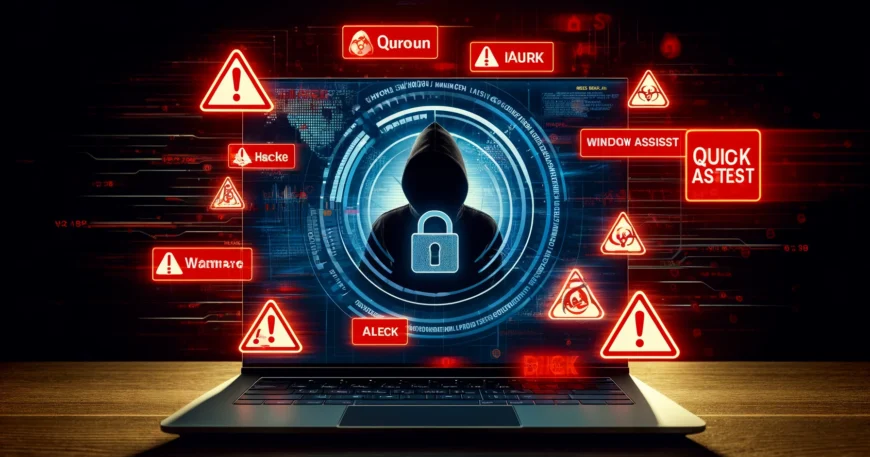In recent cybersecurity developments, the notorious Black Basta ransomware group has found a new vector for their malicious activities: Windows Quick Assist. This alarming trend highlights the ever-evolving tactics of cybercriminals and underscores the importance of robust cybersecurity practices.
Understanding Black Basta
Black Basta is a ransomware group known for its sophisticated attacks on organizations worldwide. They employ a double extortion strategy, where they not only encrypt victims’ data but also threaten to release sensitive information if the ransom isn’t paid. This approach adds pressure on victims to comply with their demands, making the attacks particularly devastating.
The Role of Windows Quick Assist
Windows Quick Assist is a legitimate tool designed to help users provide or receive assistance remotely. It’s a valuable resource for IT support, allowing technicians to troubleshoot issues on a user’s device from a different location. Unfortunately, cybercriminals have now turned this helpful tool into a weapon.
How the Exploit Works
The attackers leverage Quick Assist to gain remote access to a victim’s system. They typically start by tricking the user into granting access, often through phishing emails or deceptive messages that appear to be from trusted sources. Once they have control, they can deploy ransomware, encrypt files, and initiate their double extortion tactics.
The Danger of Remote Assistance Tools
Remote assistance tools like Quick Assist are inherently powerful, providing full access to the system they’re connected to. This makes them attractive targets for cybercriminals. The abuse of such tools isn’t new, but the involvement of a prominent ransomware group like Black Basta is a concerning escalation.
Mitigation Strategies
To protect against these types of attacks, organizations and individuals should adopt a multi-layered approach to cybersecurity. Here are some key strategies:
- User Education: Regularly train employees and users to recognize phishing attempts and the dangers of unsolicited remote assistance requests.
- Access Controls: Implement strict access controls and permissions for remote assistance tools. Ensure that only authorized personnel can initiate or approve remote access sessions.
- Multi-Factor Authentication (MFA): Enforce MFA for remote access tools to add an extra layer of security. This makes it harder for attackers to gain access even if they have the user’s credentials.
- Monitoring and Logging: Continuously monitor and log remote access sessions. Anomalies or unauthorized attempts should trigger immediate alerts and responses.
- Regular Updates: Keep all software, including remote assistance tools, updated with the latest security patches. This helps close potential vulnerabilities that attackers might exploit.
The exploitation of Windows Quick Assist by the Black Basta ransomware group is a stark reminder of the need for vigilance in cybersecurity. As attackers continue to refine their methods, staying informed and adopting comprehensive security measures is crucial. At Sun IT Solutions, we’re committed to helping you navigate these threats and safeguard your digital assets. Stay tuned for more updates and insights into the evolving landscape of cybersecurity.
For more detailed information on this attack, you can refer to the original article on Fortinet.
If you have any questions or need assistance with your cybersecurity strategy, feel free to contact us at Sun IT Solutions. We’re here to help you stay secure.





